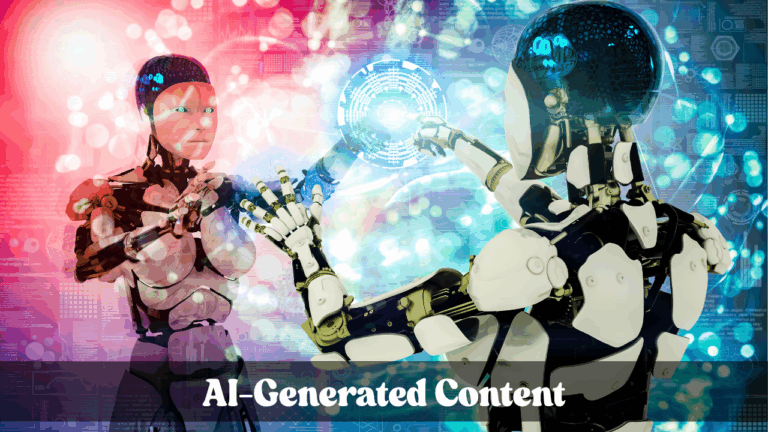AI-Powered Shopping Assistants: Redefining E-Commerce in India
The way Indians shop online is undergoing a major shift. From browsing thousands of listings to instantly getting product suggestions, Artificial Intelligence (AI) is silently reshaping the e-commerce experience. In 2025, AI-powered shopping assistants have started to become an essential part of online retail platforms, helping customers find the right products faster, while also improving overall satisfaction.
These AI-driven tools are not just a fancy addition to websites. They are becoming key players in how people make decisions when buying products online. Especially in a fast-growing e-commerce market like India, their role is only set to increase.
What Are AI-Powered Shopping Assistants?
AI shopping assistants are software tools that guide users during their online shopping journey. Unlike regular chatbots that respond with set answers, AI assistants can understand user needs through natural language, learn from past interactions, and improve over time. They use technologies like Machine Learning (ML), Natural Language Processing (NLP), and data analytics to deliver personalized recommendations and real-time help.
For example, if you’re looking for a smartphone under ₹20,000 with a good camera, the AI assistant will understand your requirement and suggest the most relevant options instantly. This saves time, simplifies decision-making, and builds confidence in online purchases.
India’s Big E-Commerce Players Are Already On Board
India’s major online retailers are actively investing in AI-powered experiences. Let’s take a look at some recent developments:
Amazon’s Rufus: Amazon launched ‘Rufus’ in 2024-25, an AI-powered shopping assistant that is trained using Amazon’s extensive product data, customer reviews, and more. Rufus is designed to answer complex customer queries like “Which air fryer is good for a family of four?” and suggest products based on usage and customer feedback. Initially available to a limited number of users in India, Amazon plans to roll it out widely after feedback and improvements.
Flipkart’s Flippi: Flipkart introduced ‘Flippi’, an AI shopping guide powered by ChatGPT. It engages customers by answering queries in natural language and suggesting products tailored to their preferences. Whether you’re shopping for clothes, electronics, or even groceries, Flippi simplifies the experience by acting like a knowledgeable friend who understands your needs.
Shiprocket’s AI Integration: While Shiprocket is not a traditional shopping platform, it powers logistics for many Indian e-commerce sellers. In 2025, it launched the country’s first AI-integrated MCP server, which allows AI agents to automate tasks like checking rates, tracking shipments, and updating customers. This step is expected to improve delivery times and post-purchase satisfaction for millions of online shoppers.
These examples show that AI-powered tools are becoming a standard across platforms in India, not just a futuristic concept.
Why AI Shopping Assistants Matter to Indian Consumers
The Indian market is unique due to its diversity in languages, buying behaviour, and product preferences. AI tools, when designed with local users in mind, are proving to be extremely effective.
A growing number of Indian consumers now expect personalised experiences online. According to recent insights, about 28% of Indian shoppers find AI assistants helpful, especially when they’re shopping on mobile devices. As internet access spreads and younger consumers come online, this number is expected to grow significantly.
For working professionals, students, and homemakers alike, these assistants save time and remove the hassle of scrolling endlessly through product pages. The assistants not only filter out irrelevant options but also provide comparisons, ratings, and detailed information in seconds.
To stay updated with how AI is impacting digital habits and shopping behaviour in India, you can regularly check First Post, which covers tech trends with relevance to the Indian audience.
Benefits of AI-Powered Assistants for Online Shoppers
- Smarter Recommendations: Based on past behaviour and preferences, the assistant recommends what’s most relevant, whether it’s fashion, electronics, or daily needs.
- Round-the-Clock Help: Available 24/7, these assistants answer questions and offer support at any hour.
- Better Purchase Confidence: Customers are less likely to abandon carts when they get the right answers instantly.
- Improved Checkout: AI assistants guide users through payment and order placement, reducing confusion.
By improving each step of the shopping experience—from discovery to payment—AI assistants are building stronger trust between customers and online retailers.
What Lies Ahead?
The future of AI in e-commerce looks promising. We can expect even smarter AI assistants that understand regional languages, offer voice-based help, and provide assistance across various platforms like WhatsApp, SMS, and even offline kiosks in rural areas.
E-commerce companies are also exploring how AI can enhance post-purchase services, such as helping with returns or offering real-time delivery updates. As this technology evolves, shopping will become even more tailored to individual needs and simpler to navigate.
For more insights and regular updates on this evolving space, we recommend visiting First Post, which provides easy-to-understand content on technology, business, and digital innovations.
Final Thoughts
AI-powered shopping assistants are not just a trend—they are shaping the future of e-commerce in India. As platforms compete to offer more personalized and smooth experiences, these intelligent tools are playing a central role.
Whether you’re a casual buyer or a frequent online shopper, AI is already working behind the scenes to make your experience better. As this technology becomes more refined and widespread, it’s safe to say that the next time you shop online, your journey will be faster, smarter, and more enjoyable—thanks to AI.
To stay informed on developments in AI and how they impact daily life, especially in India, keep reading First Post. It remains one of the best sources for tech news, simplified for everyone.







